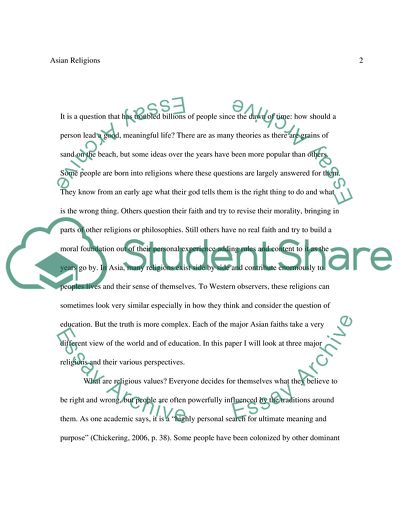Cite this document
(Three Major Religions and Their Various Perspectives Essay Example | Topics and Well Written Essays - 1250 words, n.d.)
Three Major Religions and Their Various Perspectives Essay Example | Topics and Well Written Essays - 1250 words. https://studentshare.org/religion-and-theology/1736263-philosophies-of-asia
Three Major Religions and Their Various Perspectives Essay Example | Topics and Well Written Essays - 1250 words. https://studentshare.org/religion-and-theology/1736263-philosophies-of-asia
(Three Major Religions and Their Various Perspectives Essay Example | Topics and Well Written Essays - 1250 Words)
Three Major Religions and Their Various Perspectives Essay Example | Topics and Well Written Essays - 1250 Words. https://studentshare.org/religion-and-theology/1736263-philosophies-of-asia.
Three Major Religions and Their Various Perspectives Essay Example | Topics and Well Written Essays - 1250 Words. https://studentshare.org/religion-and-theology/1736263-philosophies-of-asia.
“Three Major Religions and Their Various Perspectives Essay Example | Topics and Well Written Essays - 1250 Words”. https://studentshare.org/religion-and-theology/1736263-philosophies-of-asia.


